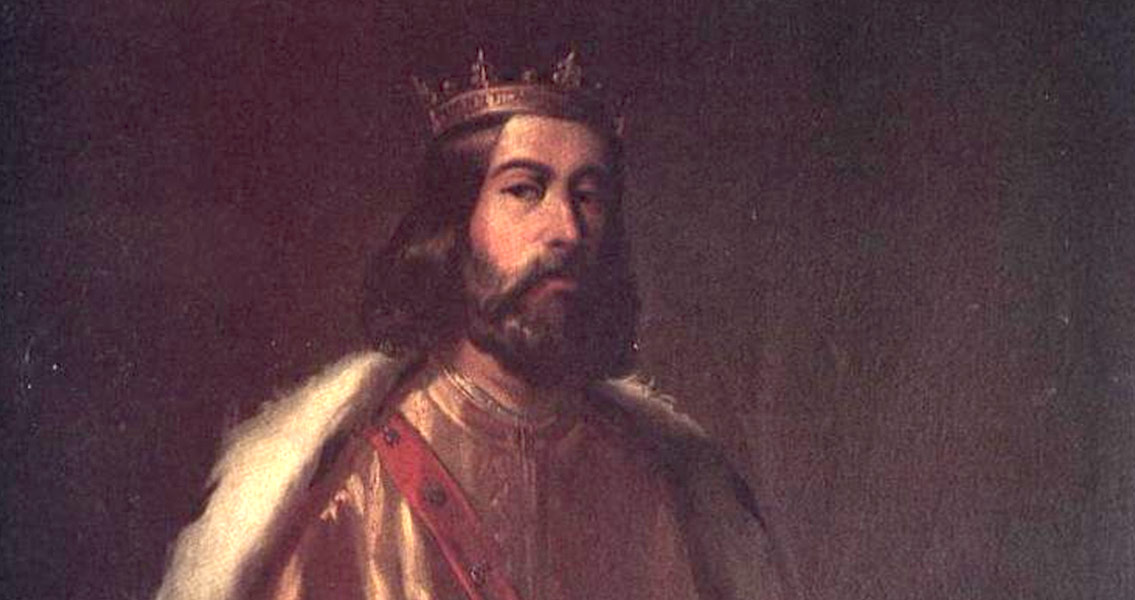<![CDATA[On the 18th December 1118 Alfonso the Battler, the Christian King of Aragon, captured Zaragoza from the Islamic rulers of Spain. The conquest marked a devastating blow for the Muslim civilisation on the Iberian Peninsula, which had been there since the eighth century. Although the fall of Granada in 1492 signalled the final end of the Muslim kingdom in Spain, Alfonso's conquests in 1118 proved one of the most fascinating parts of European history - an Islamic kingdom which lasted over seven hundred years, had been in a state of decline long before its final capitulation. Alfonso was born in 1073, into a fragmented Europe that was still feeling the chaos of the end of the Roman Empire. He was the second son of Sancho V. Ramirez, the king of Arragon. He married Urraca, the heiress of Alfonso VI, the king of Leon and Castille. The death of Alfonso the Battler's elder brother Peter in 1104, combined with the inheritances he had won from his marriage to Urraca, meant that in 1109 he was given control of all four Christian kingdoms in Spain. This union ultimately failed for a variety of reasons, including interference from the church and political intrigues between the kingdoms, and Alfonso eventually gave up his claim to all but the Aaragon throne in 1126. Alfonso, as his epithet suggests, is mostly remembered for his military exploits rather than political disputes over thrones. His first four years as King of Aragon were spent in a state of almost constant warfare with the Islamic Kingdoms of Spain. In 1105 he conquered Ejea and Tauste and reinforced the Christian territories of Castellar and Juslibol, in 1106 he achieved a victory over al-Musta'in of Zaragoza at Valtierra, and in 1107 he took Tamarite de Litera and Esteban de la Litera. Disputes over his claims to the four kingdoms in 1109 meant his conquests into Muslim territory were halted for several years, but by 1117 he was prepared to launch some of his most ambitious campaigns yet. In 1118 the Council of Toulous declared a crusade against the Muslim Kingdoms in Spain. Alfonso's army quickly progressed through the Iberian Peninsula, reaching Zaragoza in May. Following a long siege, the city eventually fell on December 18th, and Alfonso swiftly declared it his capital. The following year he made further gains in Spain, before returning to Zaragoza in 1120 to successfully repel a Muslim army attempting to retake the city. Over the next fifteen years his raids into Muslim territory continued, with more cities falling under his control. His successes were complicated by disputes with leaders of the other Christian kingdoms in Northern Spain and France, which on several occasions forced him to abandon his campaigns to secure his own territory. His war effort depended on soldiers from other Christian kingdoms, which frequently pulled him out of the battle zone to resolve political issues. He eventually died in September 1134, several months after his last success, capturing Fraga with a force of just 500 knights. The Muslim conquest itself had started in 711 CE, when forces from North Africa launched an attack against the Visigoth ruler, King Roderick. The conquest was comparatively quick, with the entire Iberian Peninsula conquered by 720 CE. There are several reasons for this. Firstly, the Visigoths ruler's unpopularity meant there was little motivation to maintain the status quo. Secondly, the Muslims offered favorable terms for surrender, again, reducing the motivation to resist. Despite existing in the middle of the 'Dark Ages', Islamic Spain is regarded by some historians as a civilisation that rivalled the achievements of the Roman Empire and the Italian Renaissance. It laid the foundations for the modern University, a blueprint which would be followed later by the likes of Oxford and Cambridge Universities. It also played an important role in translating the key texts of Greek civilisation, laying the groundwork for the Renaissance. Perhaps most interestingly, non-Muslims were not heavily persecuted. Although clearly 'second class' in the Muslim territories, they were, at least by the standards of the era, treated with a reasonable degree of tolerance. The decline of Muslim Spain had started in the tenth century. It was caused by both internal disputes, as well as increased aggression from neighbouring Christian states, something Alfonso was a clear embodiment of. The changing attitude towards Islamic Spain in Alfonso's time reveals a great deal about the growing crusader mindset of church and state, and the willingness of men to go to war over conflicting religious beliefs.]]>
Alfonso the Battler and Muslim Spain
